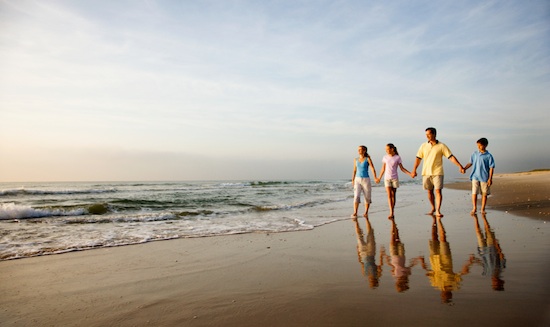The “Earth Day” For Beaches: Clean Beach Week
July 2, 2013
Clean Beach Week was started by the Clean Beaches Coalition and is held every year from July 1st-July 7th. Clean Beach Week is the “Earth Day” for beaches. The week is designed to promote a healthy beach lifestyle and to bring awareness to the problems associated with dirty and ill-maintained beaches. With summer break underway across the US, many families are planning to take a trip to the beach. It is always important to remind children (and even adults) the importance of reducing your impact on the beaches when traveling. Here are a few tips in honor of Clean Beach Week to keeping our beaches clean.
Keep it Clean
When on the beaches follow the motto “what you take in you take out.” Don’t leave even a shred of paper behind. Find a garbage receptacle or recycling bin to place all your trash and never litter on the beach. Even one small piece of garbage can cause all kinds of problems for marine life:
- Entanglement and ingestion marine litter in birds and marine mammals causes a great number of deaths internationally each year.
- Microscopic pieces of plastic are eaten by micro-organisms and eventually, as they work their way up the food chain, plastics can be found at concentrations of 150 to 2400 particles per m3 in larger marine animals.
- Maine and coastal animals can contract toxic chemical poisoning from contaminated plastic litter – this can lead to altered hormone levels and possible death.
As if that wasn’t bad enough, the period of time it takes for litter to degrade can be substantial. Here is how long you can expect common marine litter to take to decompose:
- Plastic bags- 450 years
- Fishing line- 500 years
- Aluminium cans- 100 years
- Glass bottles- 500 years
- Cigarette butts- 3-5 years
Keep Away from the Dunes
Dunes may look like a lot of fun to trample, but they have a specific purpose for wildlife in the area. Dunes are nature’s way of protecting the beaches and the inland areas. Dunes keep sand, salt, and water from reaching some of the more fragile plant life near the beaches. They act as a first line of defense against storms and wind damage for these plants and wild life. Dunes also house small eco systems of their own. Special vegetation and insects thrive in dune habitats.
Walking on a dune can damage it. This will disrupt the eco system thriving below as well as potentially opening up plant life and wold life on shore to being damaged by the elements. Dunes are incredible fragile and walking on them can cause damage that can not be repaired.
Are you planning to visit the beach this year?






